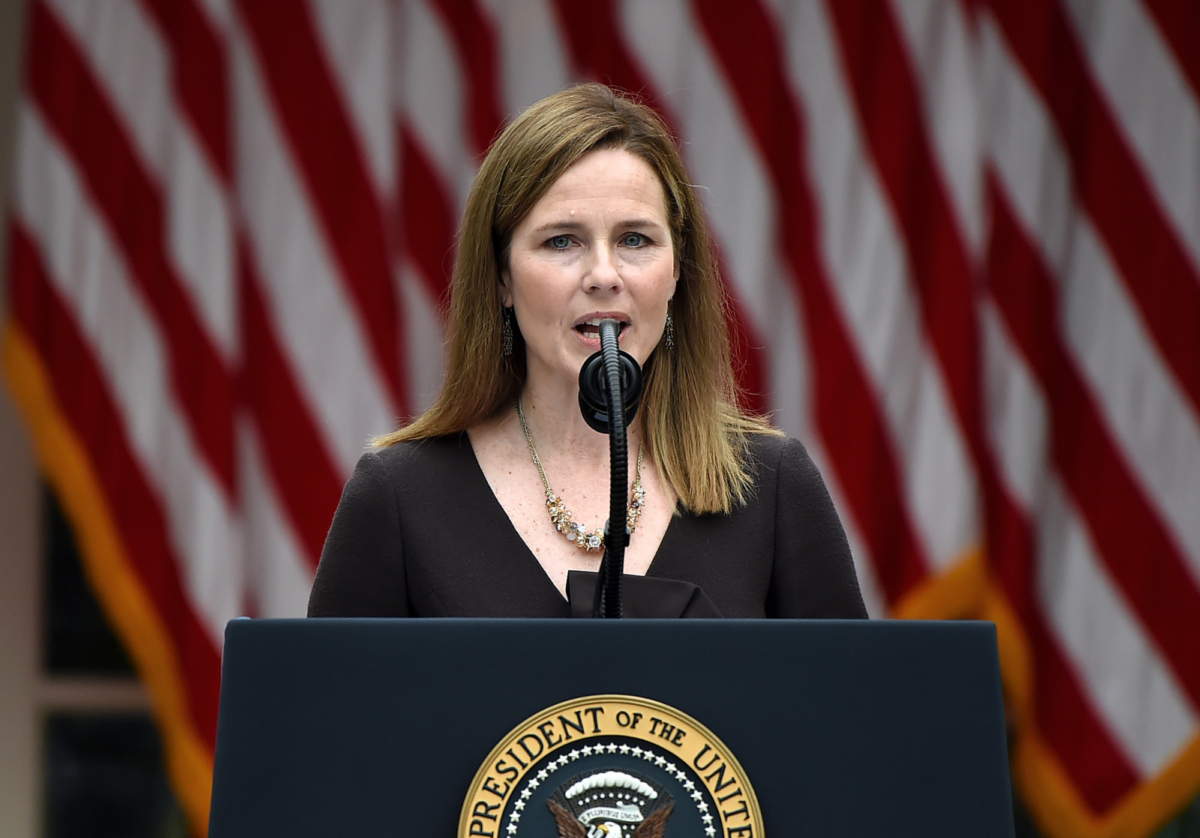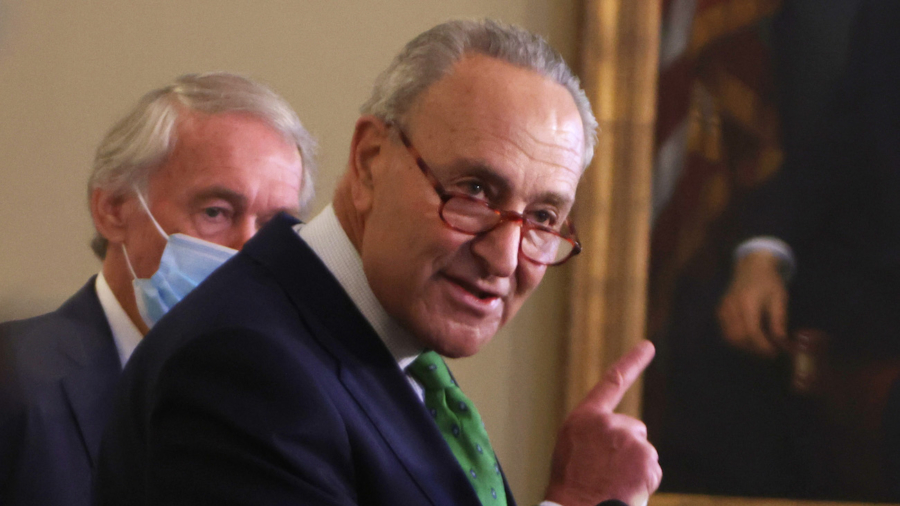The process to confirm Supreme Court nominee Amy Coney Barrett has begun with the judge meeting with some senators on Tuesday, as other top Democrats refused to meet, calling the procedure “illegitimate.”
Senate Minority Leader Chuck Schumer (D-N.Y.) said in a statement on Twitter that he won’t meet with Barrett.
“I am not going to meet with Judge Barrett. Why would I meet with a nominee of such an illegitimate process and one who is determined to get rid of the Affordable Care Act?” he wrote.
On Sunday, another New York senator, Kirsten Gillibrand, said she wouldn’t be meeting with Barrett either. “I will not meet with Judge Amy Coney Barrett,” Gillibrand wrote in a tweet. “This nomination process is illegitimate.”
Schumer and Gillibrand are joined by Sens. Richard Blumenthal (D-Conn.) and Maize Hirono, (D-Hawaii) in refusing to meet with the 7th U.S. Circuit Court of Appeals judge. Hirono has said that Trump’s Supreme Court nomination goes against the late Justice Ruth Bader Ginsburg’s dying wish.
Days before her death on Sept. 18, Ginsburg dictated a wish to her granddaughter related to the 2020 presidential election.
“My most fervent wish is that I will not be replaced until a new president is installed,” Ginsburg told her granddaughter, Clara Spera, according to NPR.
Blumenthal, meanwhile, also called the process “illegitimate,” writing in a statement: “I will oppose the confirmation of Judge Amy Coney Barrett, as I would any nominee proposed as part of this illegitimate sham process, barely one month before an election as Americans are already casting their votes.”
“Judge Barrett, like any Trump nominee, has already been vetted & screened to meet two tests: a commitment to striking down the Affordable Care Act & to overturning Roe v. Wade,” he added.

Trump nominated Barrett to fill the Supreme Court vacancy on Sept. 26.
Democrats are vowing to do everything they can to take back the Senate and keep the House majority and some have even suggested adding Supreme Court justices to the bench.
“We can look at whatever tools we have in our toolkit. But for me, the biggest tool that we have is to make sure that the American people understand what is at stake with this new nominee,” Hirono told NPR in an interview Sept. 22. “And what is at stake is their very healthcare because the Supreme Court is going to take up the Affordable Care Act in November.”
Axios reported that during a conference call with the Democrat Caucus on Sept. 19, Schumer warned against filling the Supreme Court vacancy.
“Let me be clear: if Leader McConnell and Senate Republicans move forward with this, then nothing is off the table for next year,” Schumer declared. “Nothing is off the table.”
In addition, House Judiciary Chairman Jerry Nadler (D-N.Y.) called for packing the high court should the Senate confirm the new justice.
“If Sen. McConnell and @SenateGOP were to force through a nominee during the lame-duck session—before a new Senate and President can take office—then the incoming Senate should immediately move to expand the Supreme Court,” he wrote on Twitter on Sept. 19.
“This fight for a Supreme Court justice really is about health care and the upcoming ACA hearing,” Rep. Katherine Clark (D-Mass.), the vice chair of the Democratic Caucus, told reporters at a press conference Sept. 23.
Despite Democrats’ sentiment, if Republican senators unite, they have the numbers to push Barrett through the confirmation. After Ginsburg death, Sens. Susan Collins (R-Maine) and Lisa Murkowski (R-Alaska) announced their opposition to a Supreme Court nomination. Murkowski has since shifted her stance, saying she will meet with Barrett.
If Senate Republicans lose three votes, Vice President Mike Pence can break the tie. Senate Judiciary Chairman Lindsey Graham (R-S.C.) has said Barrett’s confirmation could be done by the end of October and that a final vote could be held on Oct. 26.
Epoch Times reporter Ivan Pentchoukov and Zachary Stieber contributed to this report

